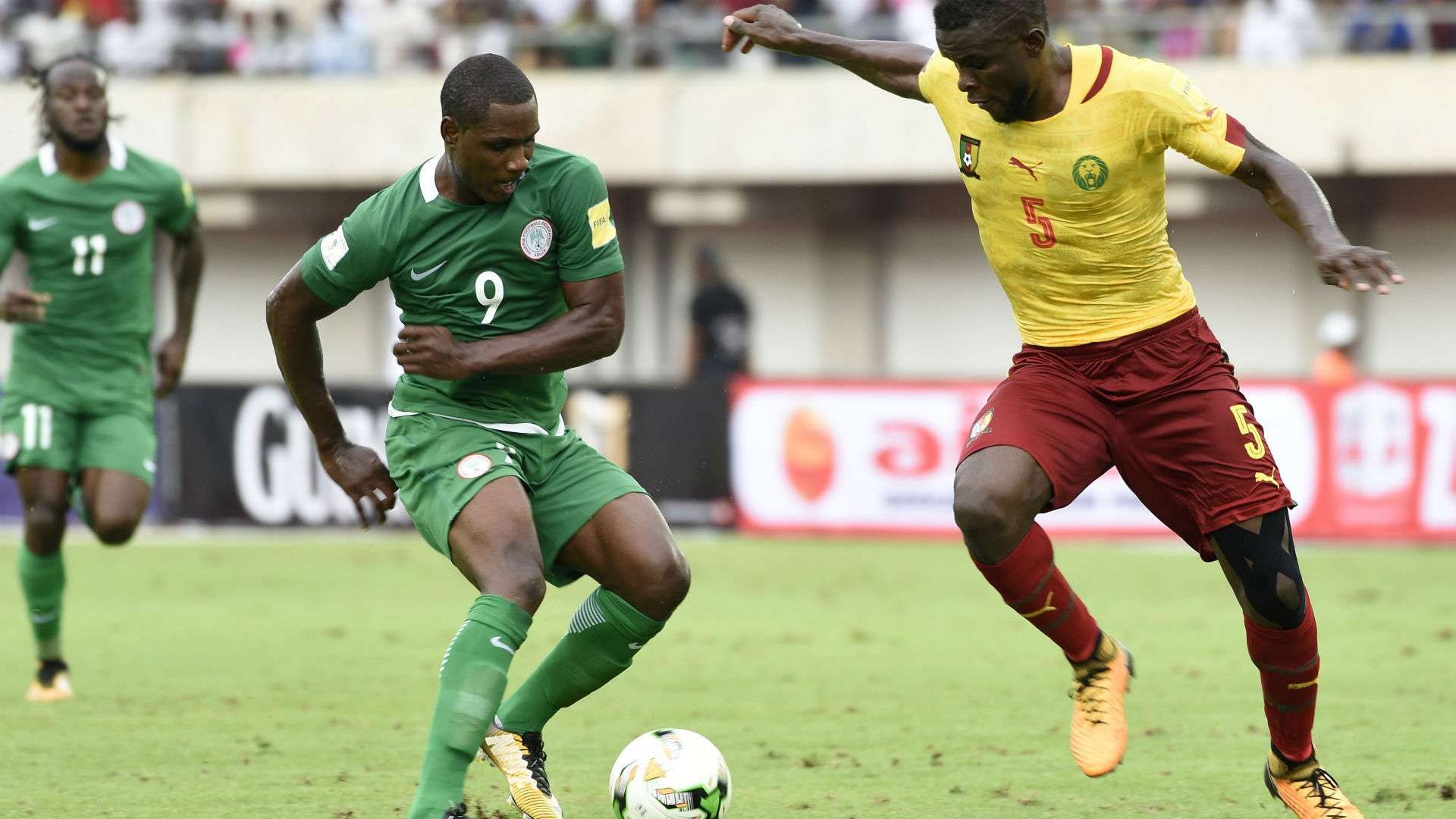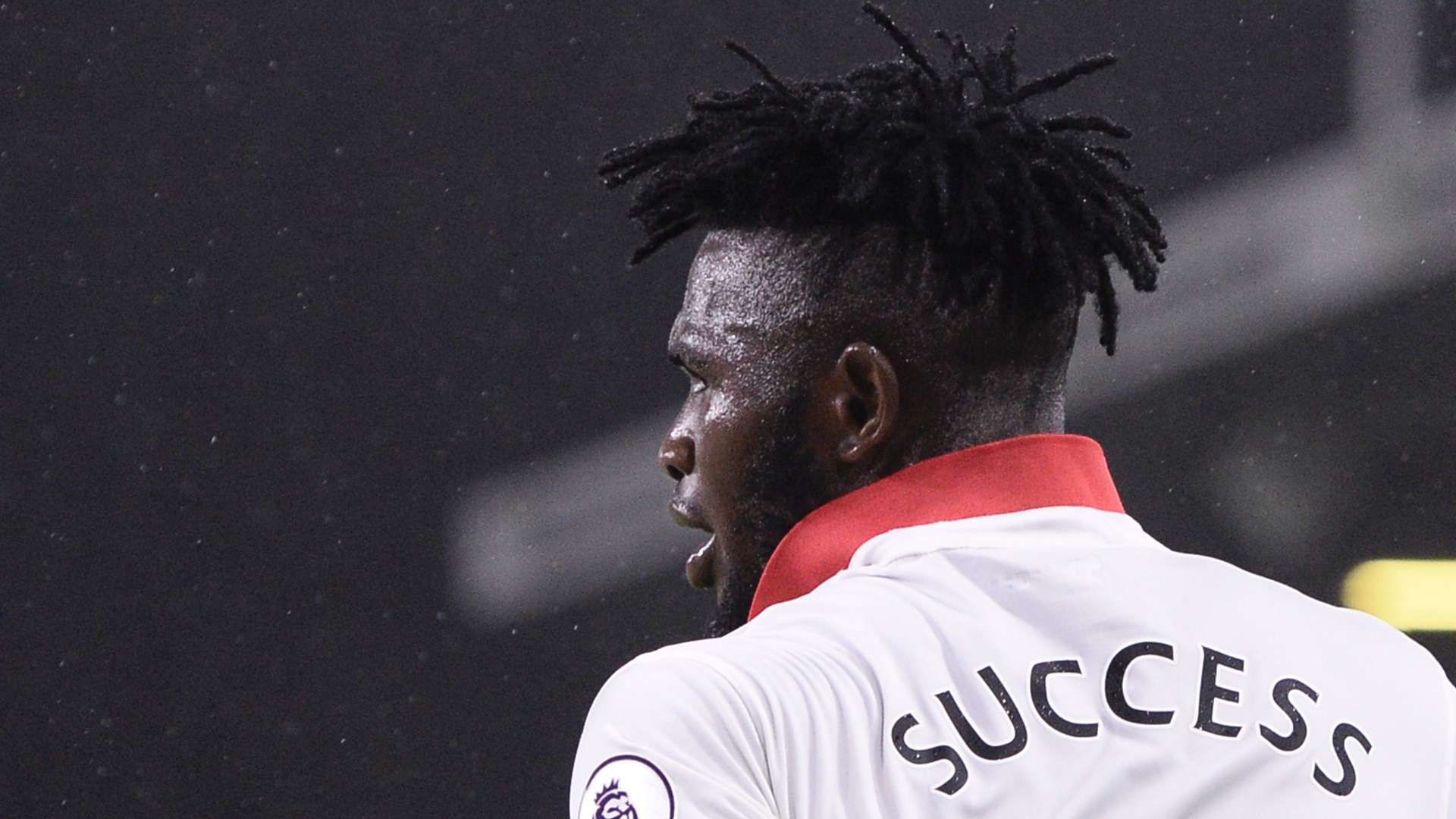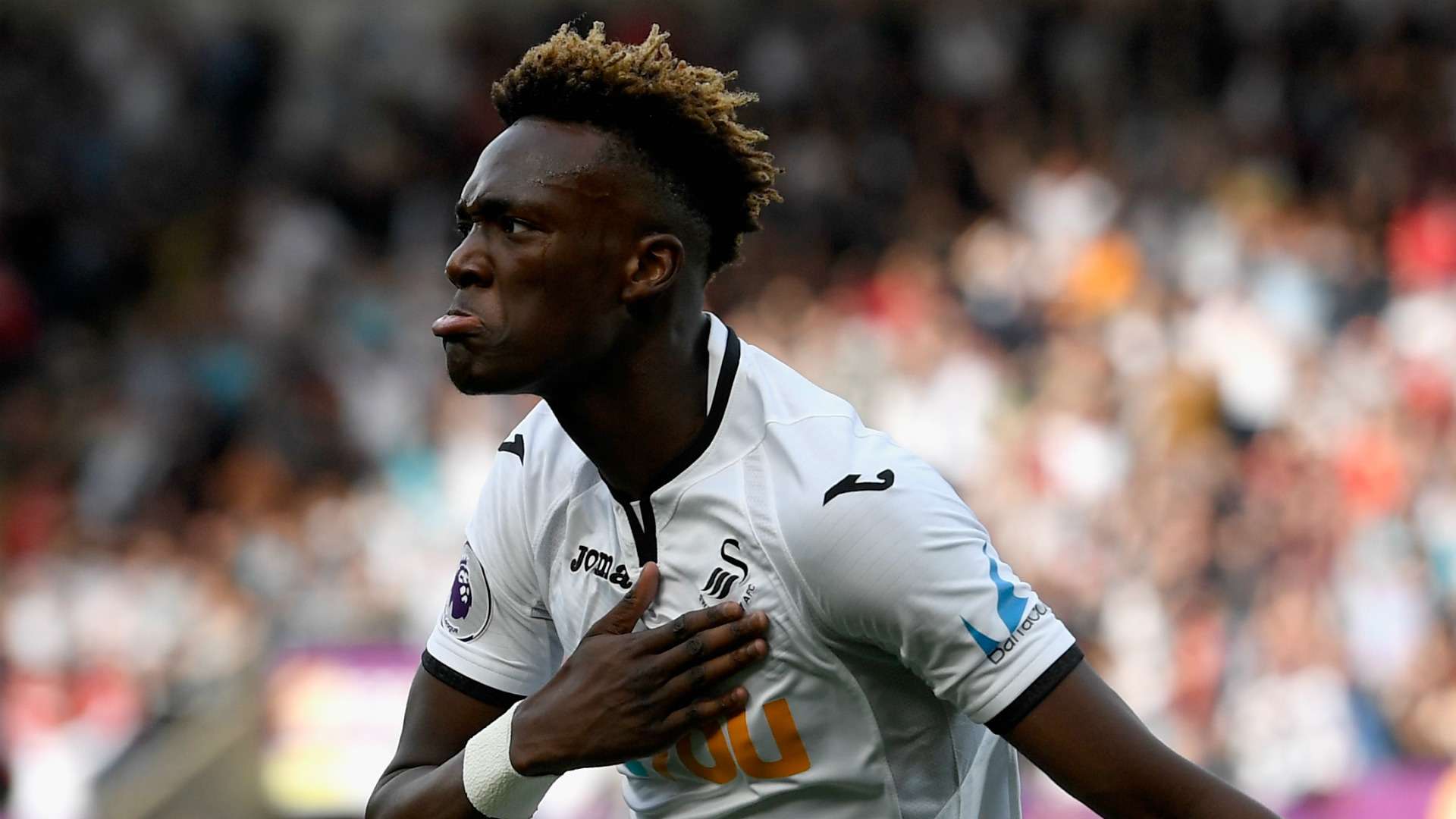COMMENT By Solace Chukwu
International football takes centre stage this week, with so much still to be decided. For Nigeria, a victory over surprise package Zambia is what is required to wrap up qualification for next year's World Cup in Russia.
The widespread assumption is that early qualification will allow Gernot Rohr to focus on experimentation, and while that is true, it is also counterintuitive to a degree, especially considering even the starting XI remains a work in progress.
Nowhere is this more apparent than upfront.
Rohr has so far used three different centre-forwards, and only Odion Ighalo has started there more than once. He distinguished himself over both legs against Cameroon, and is now arguably in pole position for the role, but focus on the team's defensive aspects has masked the fact that, beyond Ighalo, the pool is a lot murkier.
 Getty
Getty
This would explain somewhat the desire of the NFF to rope in Swansea forward Tammy Abraham: mobile and aggressive, he offers very useful traits. While, of course, the slightly impolitic nature of the overture has led to that door shutting, it is understandable, through the haze of regret and sour grapes, that he was approached.
There is not, as some would imagine, a veritable glut of goalscoring options otherwise. Ighalo himself had been out of the national team frame since Rohr's first competitive game in charge – the lone-goal victory over Tanzania – before roaring back into contention on the back of good form in China.
For the first World Cup qualifier, Brown Ideye played upfront, and was instrumental in a 2-1 victory on the road (incidentally, against Zambia) to set the ball rolling. He would then drop out, as injury and later on moving clubs saw him relegated.
Kelechi Iheanacho led the line against Algeria, but only in the loosest sense of the term, offering little by way of genuine incision when required to play so far forward. He has however seen his career plummet since then: ostracized and then kicked to the curb by Manchester City following a start that hinted at more, and now struggling to find his feet at Leicester City.
 Getty
Getty
In any case, he seemed even then to lack the agility and physicality to truly impress himself on a game and earn the right to play when up against centre-backs, a fact that was painfully obvious when the Super Eagles lost their first (and only) game so far under Rohr to South Africa.
It is inconvenient to admit, and unfair to pick on him, but Iheanacho is the poster boy for a new, vaunted generation of Super Eagles forwards, the likes of which include Isaac Success, Taiwo Awoniyi and Victor Osimhen.
They have all not quite lived up to their potential so far, and that for varying reasons: Success, for instance, has battled with fitness for almost the entirety of his time at Watford, and has not started five games on the trot at any time. He is now on the outs, serially missing from matchday squads even while fit.
Awoniyi is only now starting to look like he belongs at senior club level with Mouscron, while Osimhen has yet to even get going at Wolfsburg. It would take a great deal of optimism to see how they would be useful within the next nine months.

The contrast with Abraham, starting and influencing games in the Premier League, is jarring.
Nor, for that matter, can we consider those whom Rohr has included as sure things. Tony Nwakaeme is a solid option, but the German coach missed a trick by not giving him any minutes over two legs against Cameroon, and we are none the wiser as to his opinion of the Israel-based forward.
Larry Kayode perhaps did his chances more harm than good uprooting himself to move to Girona by way of Manchester City; sure, the La Liga is a more competitive environment, but everyone knows that, in a World Cup year, it is stability and consistency that counts. Predictably, he has been unable to make any sort of impact in Catalonia...yet.
Clearly then, the problem is not so much that there are no chances, but that none of the plausible options have made a strong enough case.
While the worry over going after Abraham was that he would take up a spot meant for someone else, the truth is a lot less encouraging: like the hungry Jesus found, the fig tree, for all its attractiveness and promise, has yielded nothing.
